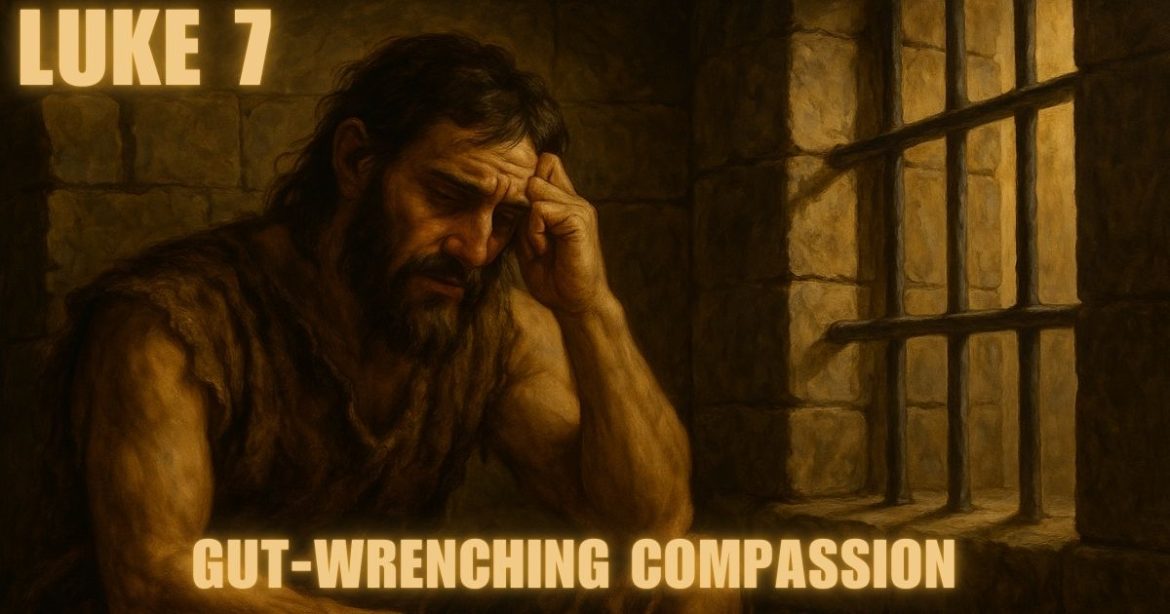Luke 7 offers one of the most tender and powerful glimpses into Jesus’ ministry, showing us what faith, compassion, and true forgiveness look like. As we face modern struggles — doubt, rejection, grief, and pride — the people Jesus meets in this chapter become mirrors for our own hearts. Today, we’ll walk through the key teachings and see what they mean for us now.
A Leader’s Unlikely Faith
The chapter opens with the story of a Roman Centurion, a surprising figure to demonstrate deep faith. He wasn’t part of Israel’s religious elite, yet he displayed a remarkable understanding of authority and humility. Rather than demanding Jesus’ presence, he simply trusted His power from a distance. Jesus praised his faith as greater than any He had seen in Israel — a stunning declaration.
Key takeaway: Faith is not about religious status; it’s about recognizing who Jesus is and trusting Him deeply, even when we don’t have all the answers.
Jesus’ Compassion for the Vulnerable
As Jesus travels to the town of Nain, He encounters a funeral procession. A widow, who had already lost so much, now faces life without her only son. Without being asked, Jesus steps in, raises her son from the dead, and restores her life. This moment isn’t just about miraculous power — it’s about a heart that aches for the broken.
Key takeaway: Jesus notices and acts on human pain. His miracles were (and still are) driven by compassion, not just display.
John the Baptist’s Honest Doubt
Even John the Baptist, imprisoned and isolated, wrestles with doubt. He sends messengers to ask Jesus, “Are you the one?” Jesus answers not with anger, but by pointing to the evidence: healings, resurrections, and hope for the poor. Jesus shows that faith can coexist with questions.
Key takeaway: Doubt doesn’t disqualify us. Honest questions can be a pathway back to deeper faith when we remember what Jesus has already done.
Jesus Redefines Greatness
Jesus calls John the Baptist the greatest born of women — yet says even the least in the Kingdom of God is greater than John. This isn’t an insult but a glimpse into the new reality Jesus was ushering in. Those who experience the fullness of salvation after His death and resurrection will have blessings John, confined in prison, never got to see.
Key takeaway: In God’s Kingdom, greatness is redefined by grace, not by human status or achievements.
The Rejection by a Childish Generation
Jesus criticizes the people for being like stubborn children who are never satisfied. Whether John fasted or Jesus feasted, they rejected both. This captures the hearts of many today who refuse faith not because of lack of evidence, but because of hardened hearts.
Key takeaway: True openness to God requires humility and a willingness to listen beyond personal preferences.
Forgiveness at the Feet of Jesus
In a stunning scene, a woman labeled a “sinner” pours perfume on Jesus’ feet, washing them with her tears. In contrast to the Pharisee who invited Jesus for dinner but offered no honor, her extravagant love reveals the depth of forgiveness she received. Jesus reminds us: the more we realize we’ve been forgiven, the more we will love.
Key takeaway: Gratitude grows when we remember how much we’ve been forgiven. Love flows naturally from a heart touched by grace.
Conclusion: Living Out Luke 7 Today
Luke 7 invites us to trust deeply, love extravagantly, and approach Jesus with both our doubts and our worship. Whether you’re a faithful outsider, a struggling disciple, or someone in need of forgiveness, this chapter shows there’s room for you at the feet of Jesus. Let’s respond not like the stubborn children, but like the grateful woman — pouring out all we have because He first loved us.

